This article covers a list of music making or audio editing software usable on Linux. Some of these applications allow you to record sound streams through external devices like microphones while others allow you to capture audio from musical instruments connected to your Linux system.
Audacity
Audacity is one of the most widely used sound editing and recording software available for Linux, Windows and macOS. Audacity is completely free and anyone can access its source code repository as it is an open source software. Its main features include audio recording through microphone and other instruments, support for importing sound files, mixing and editing of audio tracks, configurable sample rates, dithering, spectrogram, respamling, built-in and third-party plugins, sequential editing, edit history, sound effects, full support for navigation through keyboard and so on. You can read more about its features, functionality and user interface elements from its manual available here.
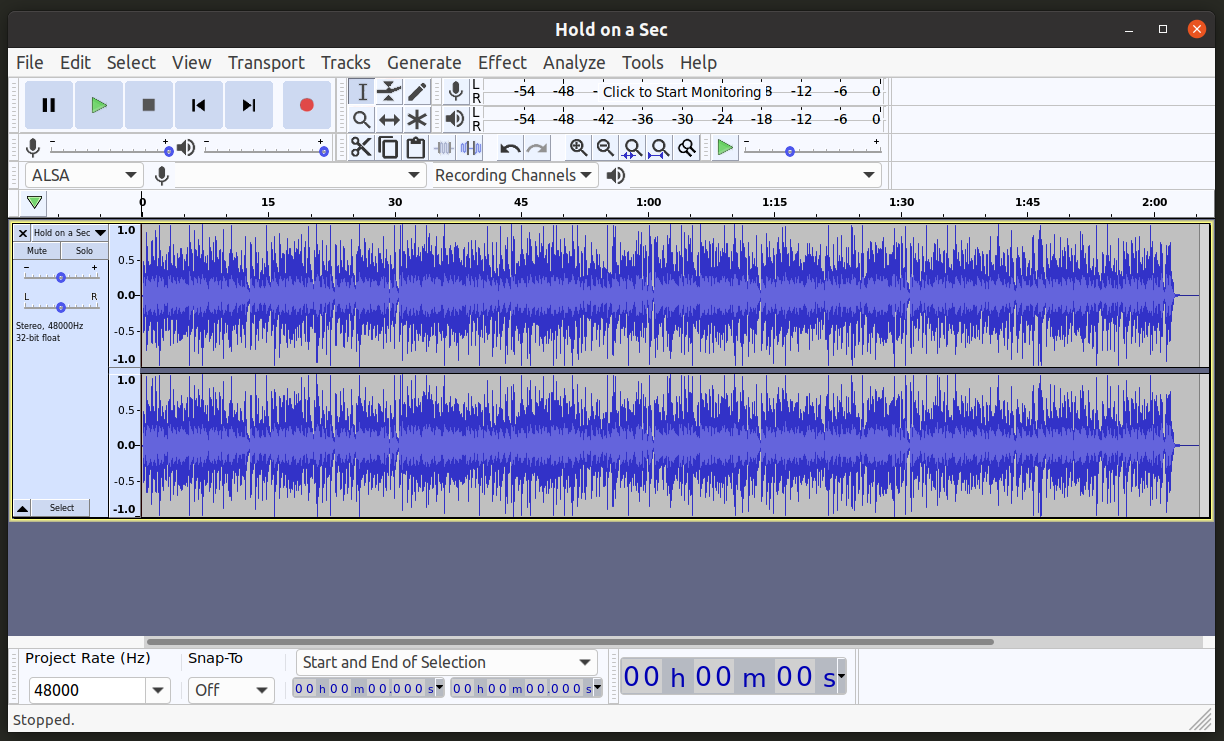
Audacity can be installed in latest versions of Ubuntu by executing the command mentioned below:
You can install the Audacity app from package manager in other Linux based distributions or you can download it from its official website.
Ardour
Ardour is a music making and recording software specially designed for engineers who regularly edit and make music. You can also use it for casual sound editing needs. Main features of Ardour include its ability to capture sound streams through microphone and other connected instruments, input monitoring, multi-layer recording mode, multi-channel and multi-layer tracks, edit history, mixing and merging of clips, support for extracting audio from video files, basic video editing tools, routing, monitor controls, official and third-party plugins, dedicated mixer strips, groups, stream panning, automation macros and so on.
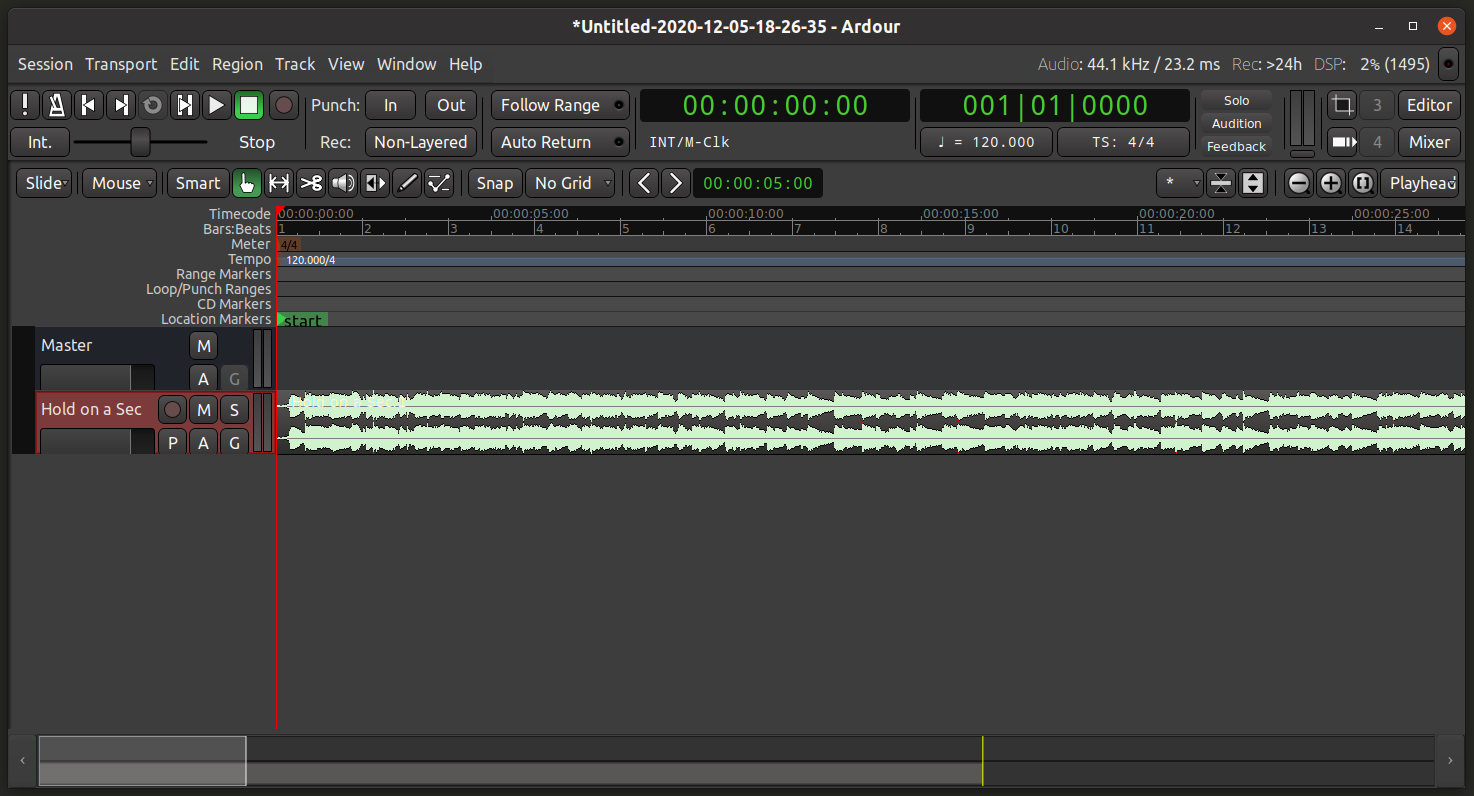
Ardour can be installed in latest versions of Ubuntu by executing the command mentioned below:
You can install Ardour app from package manager in other Linux based distributions or you can download it from its official website.
Rosegarden
Rosegarden is an open source audio sequencer, music notation creator and editor, and MIDI sequencer combined into one. It is mainly designed for editing and mixing audio recorded from musical instruments but it also works with other popular digital audio file formats. Using Rosegarden, you can compose, synthesize, arrange, edit and organize audio files and MIDI data.
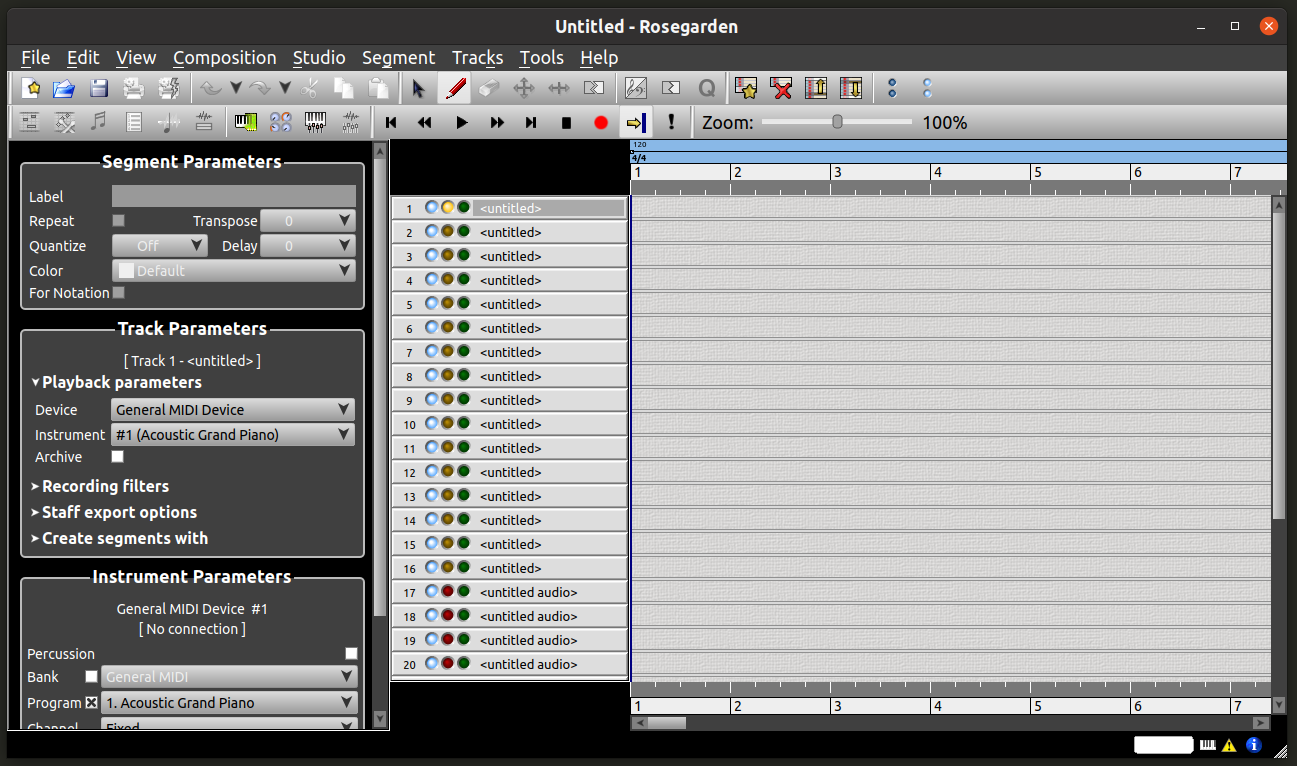
Rosegarden can be installed in latest versions of Ubuntu by executing the command mentioned below:
You can install the Rosegarden app from package manager in other Linux based distributions or you can download it from its official website.
LMMS
LMMS is a cross-platform and open source software mainly used for producing music. You can create new tracks, mix and synthesize sounds, rearrange clips and use layers. Other features of LMMS include support for MIDI keyboards, MIDI controls, multiple export options, beat editor, looping points, automation macros, piano roll, effects mixer, song editor, built-in presets and samples, and so on.

LMMS can be installed in latest versions of Ubuntu by executing the command mentioned below:
You can install LMMS app from package manager in other Linux based distributions or you can download the official “AppImage” file that runs on any distribution from its official website.
Mixxx
Mixxx is an open source and cross-platform DJ software that can be used to create live mixes and remixes. While it doesn’t work like other audio editors listed above, you can use it to record any live mixes created in real time. Its main mixing features include tempo control, support for external instruments, sound effects, support for controlling vinyl records, cue points, beat control, beat looping, pitch manipulation, built-in equalizer and so on.
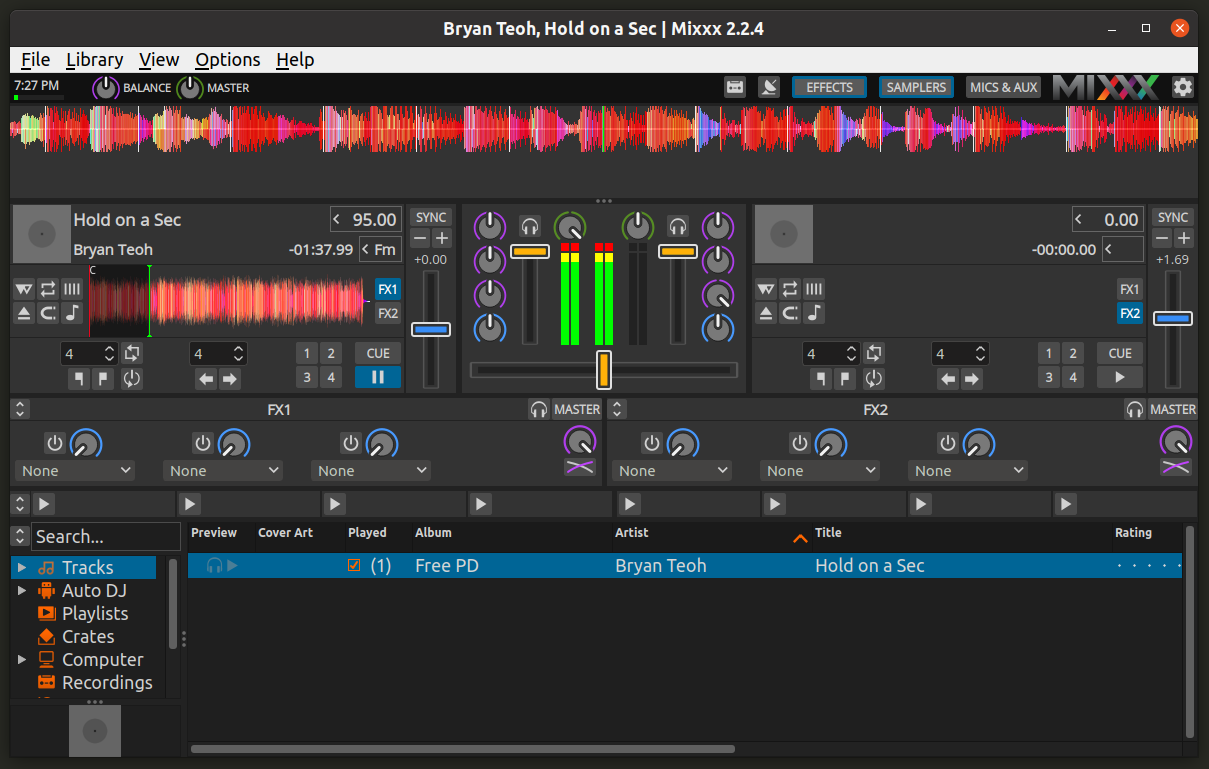
Mixxx can be installed in latest versions of Ubuntu by executing the command mentioned below:
You can install Mixxx app from package manager in other Linux based distributions or you can download it from its official website.
Qtractor
Qtractor is an open source music making software programmed in C++ and designed using Qt toolkit. You can use it to create multi-track and multi-channel sequences of MIDI and various other sound files. Other features of Qtractor include support for mixing and editing of audio clips, edit history, drag-and-drop user interface, plugins, looped recording, crossfading tools, audio normalization, pitch and tempo manipulation, support for time-stretching, sample rate manipulation and so on.

Qtractor can be installed in latest versions of Ubuntu by executing the command mentioned below:
You can install the Qtractor app from package manager in other Linux based distributions or you can download it from its official website.
Hydrogen
Hydrogen is an open source software that can sequence and synthesize emulated drum patterns or real sounds through external instruments. Other features of Hydrogen include multiple layers, chainable patterns of variable lengths, mixing and editing capabilities, tempo and pitch manipulation, visual metronome, time-stretch function, loop support and so on.

Hydrogen can be installed in latest versions of Ubuntu by executing the command mentioned below:
You can install the Hydrogen app from package manager in other Linux based distributions or you can download it from its official website.
Helm
Helm is an open source and cross-platform synthesizer that can be used to create digital music. It features multiple oscillators, waveshaping, shelf filters, arpeggiator, sound effects, step sequencer, multiple waveforms, filters and so on.
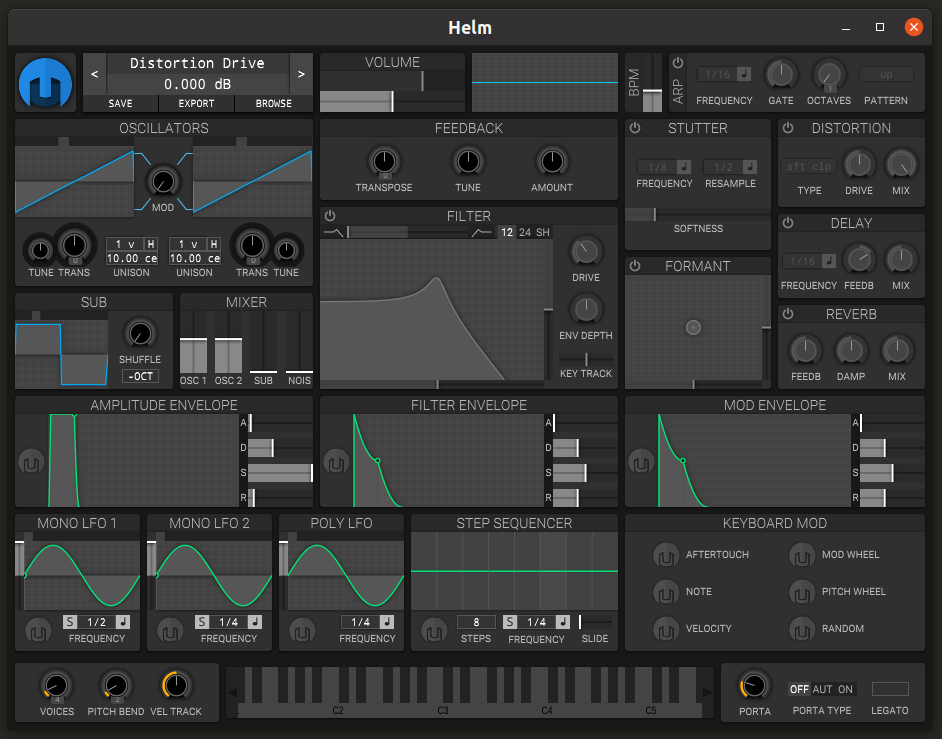
Helm can be installed in Ubuntu by downloading installable “.deb” packages available here. Once downloaded, run a command in the following format to install the “.deb” package.
You can follow instructions available here to install Helm in other Linux based distributions.
Conclusion
These are some of the best, free, and open source software that you can use to record, edit, mix, synthesize, and directly make music from scratch using external instruments connected to your Linux system.
from Linux Hint https://ift.tt/3a0CBtY




0 Comments